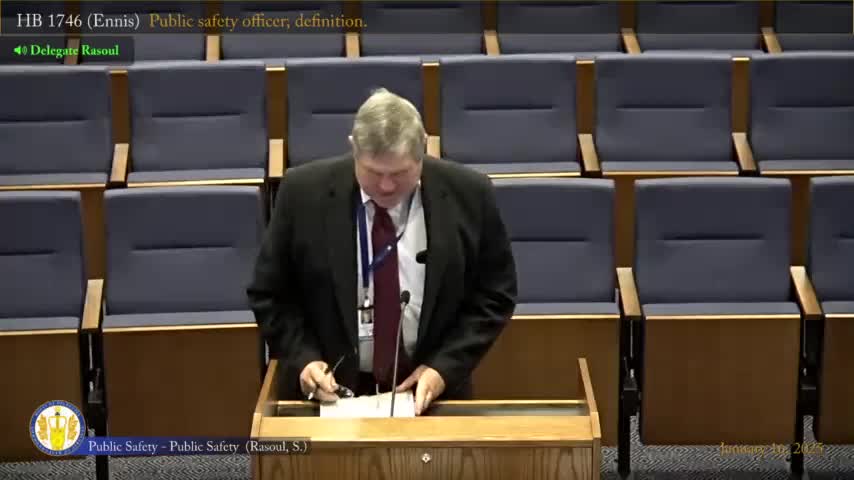Article not found
This article is no longer available. But don't worry—we've gathered other articles that discuss the same topic.
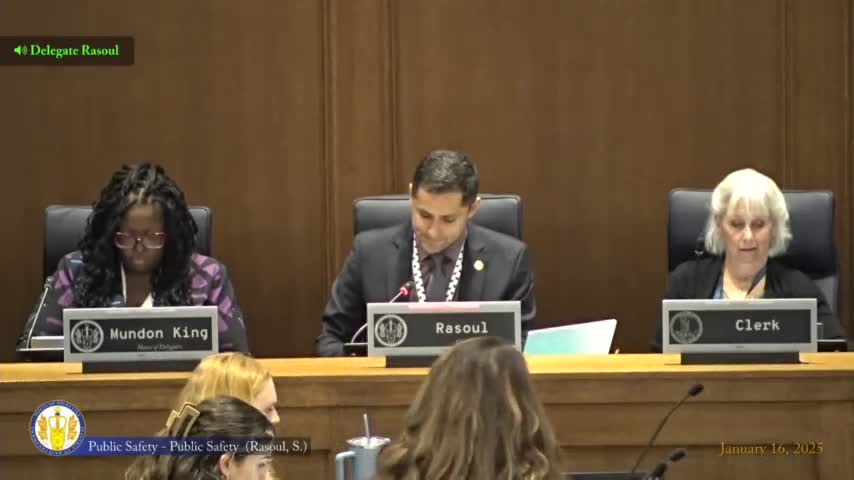
Committee reports substitute to create MOU requirement for regional-jail violent-incident investigations
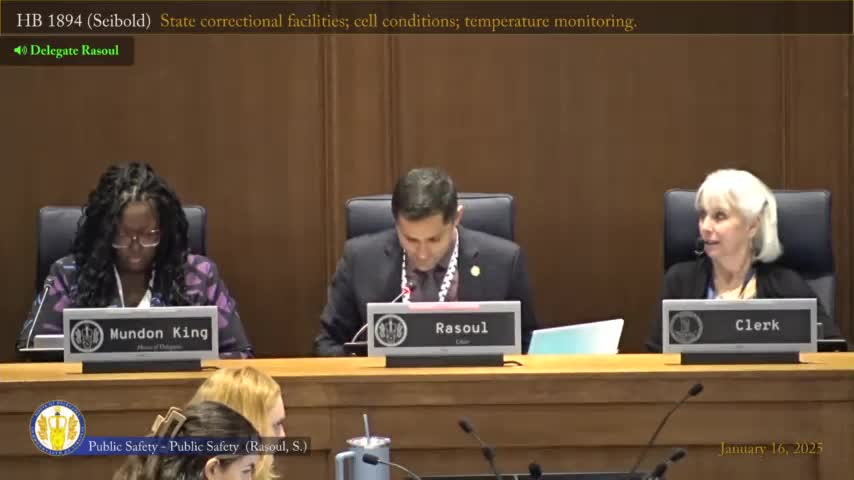
Committee backs substitute to require cell-level measures for extreme temperatures in prisons
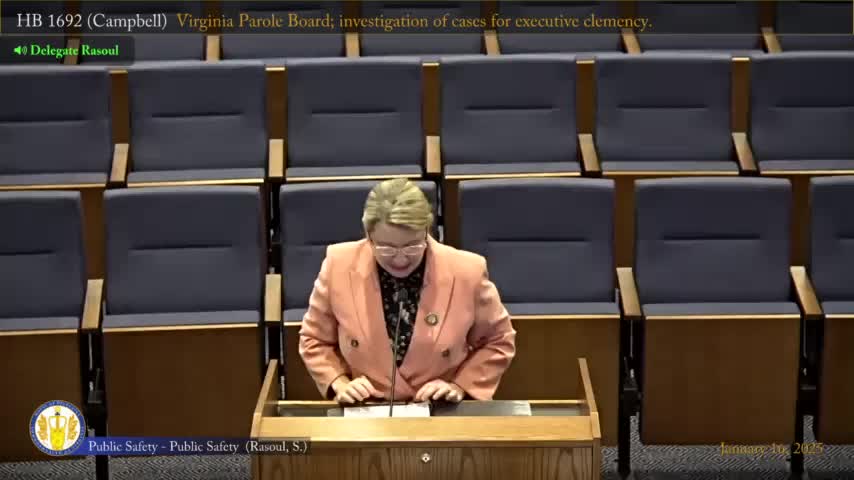
Committee pauses bill to require law-enforcement access for parole/clemency investigators after questions on costs and timeframe
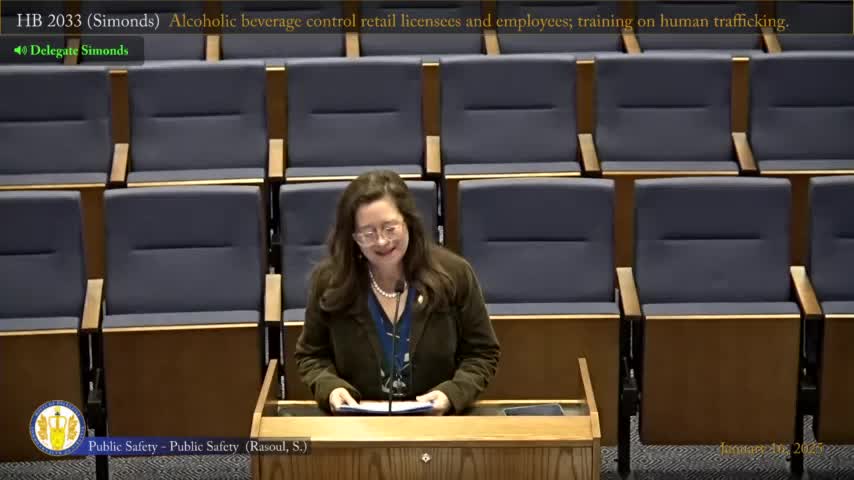
Committee advances bill to add human-trafficking training for retail ABC licensees
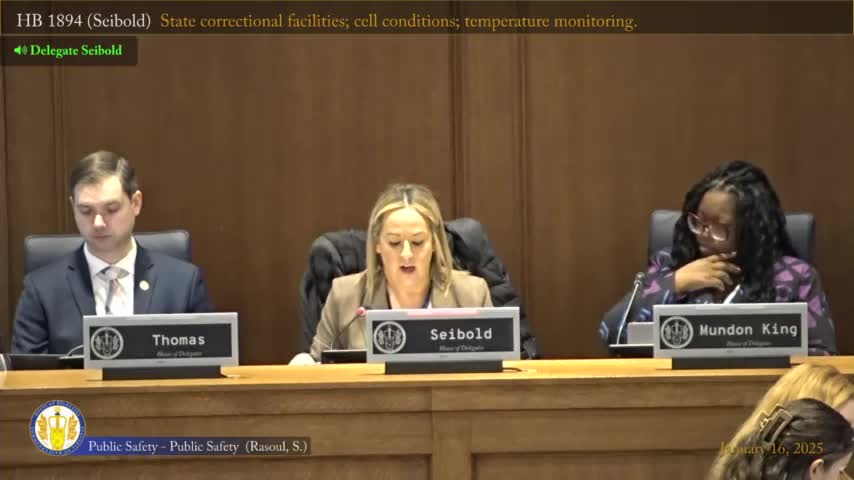
Panel asks DCJS to develop model policy on when to encrypt public-safety radio communications
